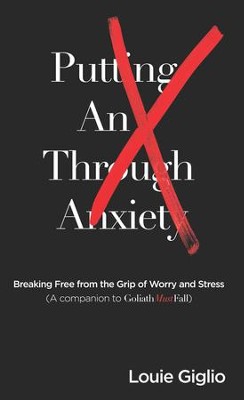Keep Calm and Carry On
Description
I once saw a fantastic sign in an English pub that I will never forget. Behind the counter was a huge red placard that read: “Keep Calm and Carry On”, a slogan created by the British government during World War II. The message was intended to raise the morale of citizens who were regularly subjected to air raids on their cities. One of the original campaign posters was rediscovered in 2000 and struck such a chord with the public that its catchphrase has been widely reproduced.
As I write this, I am stranded in a café waiting for my stressed out 12-year-old son who has missed his train due to a terrible snowstorm. I’m thinking about how I need to do more to prove myself at work but can’t because of my responsibilities at home, which are more important. I’m worried about whether or not my kids will get into good colleges and how I will pay for those college years if they do. So if today’s plans go any further awry, I might say something I regret or behave in ways I’ll be embarrassed about later. That said, I don’t think I’m very different from most people in the world.
We freak out over incidental inconveniences in life because just beneath the surface of our composure is a big fat layer of fear. So when something goes wrong—the car breaks down, a boyfriend breaks it off, or the bills break the bank—we fall apart. There are two things I try to do when faced with this scenario. The first is proactive, the later reactive.
On the front end, it’s important to build up our spiritual reserves so that when hard times come, they won’t wreak havoc in our lives. Daily prayers, immersion in the Scriptures, the company of other believers—these things buoy us in the storms.
A passage of Scripture comes to mind: “We glory in our sufferings, because we know that suffering produces perseverance; perseverance, character; and character, hope. And hope does not put us to shame, because God’s love has been poured out into our hearts through the Holy Spirit, who has been given to us,” (Rom. 5:3-5). My present “sufferings” are minimal, but they feel like a big deal right now and I’m grateful to have learned these words of encouragement.
Second, when things go wrong, I find that it’s easier to get through rough patches if I pace myself and try to focus on the beautiful things God has placed here on earth (things that I routinely ignore) to salve our wounded spirits.
If I breathe deeply and listen carefully, I can make out the melody of a Beethoven symphony playing in the background. When I think about the deaf composer who wrote these notes, my perspective shifts. He truly is a portrait of suffering, perseverance, and character molded together and refined into a conduit of hope. When I consider that I am able to enjoy his music nearly two centuries after he departed this earth, I am calm enough to carry on.
Written by Tonya Stoneman
 Overcome challenges with guided prayer, journal prompts, and God’s wisdom using iDisciple Growth Plans.
Overcome challenges with guided prayer, journal prompts, and God’s wisdom using iDisciple Growth Plans.

-12.png)







